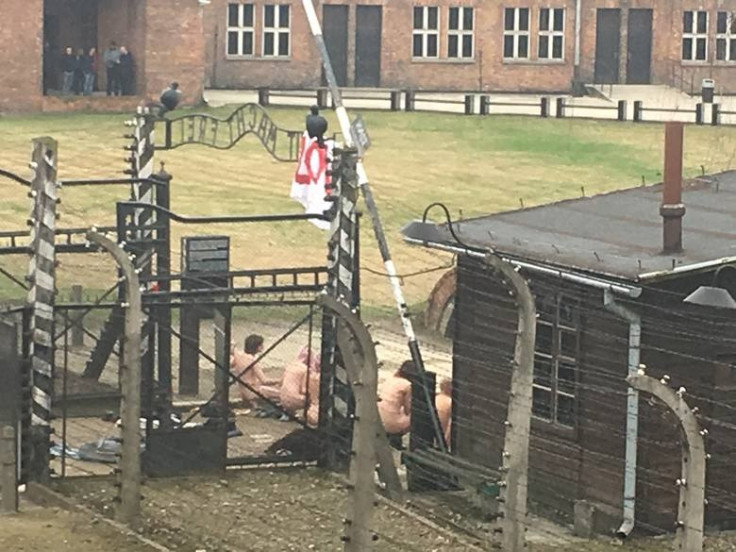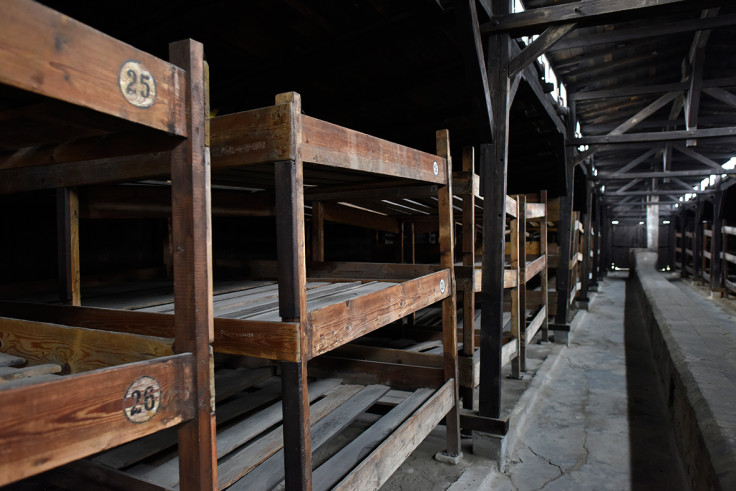Anti-war demonstrator claims stripping naked and slaughtering lamb at Auschwitz was 'work of art'
Two organisers have been jailed after a group of 12 protestors took part in the insensitive stunt in front of the former Nazi death camp.

A Polish court sentenced two people to prison on 17 January for organising an insensitive demonstration in front of the former Nazi death camp at Auschwitz-Birkenau. Adam B and Mikita V were slapped with an 18 and a 14-month jail term, respectively for planning and taking part in an anti-war protest at the historic site. Mikita termed the court verdict as unfair and said that they were punished "for a work of art".
As part of the demonstration which took place in March 2017, 12 people between the ages of 20 and 27, stripped naked and chained themselves to the "Arbeit macht frei" ("Work makes you free") gate. They also set up a white banner with the word love written in red, and one individual slaughtered a lamb.
The other 10 defendants — a mix of Belarussians, Poles and one German — have been ordered to pay a fine of 10,000 zloty ($3,000) for their involvement.
"These people desecrated one of the most tragic places in the world... by shamelessly trying to use it to propagate vague ideas that never really were explained and injuring the millions of people whose loved ones died there," Auschwitz museum director Piotr Cywinski said, according to the Polish news agency PAP.
"Using the symbol of Auschwitz for any kind of manifestations or happenings is outrageous and unacceptable," the museum added in a statement.
"Auschwitz is a memorial site, a symbol of martyrdom and a cemetery for thousands of human beings," prosecutor Mariusz Slomka, said at the court in the southern city of Oswiecim. "We must send a clear signal... that these kinds of stunts should never be repeated."
Despite widespread criticism of the protest, the group stress that they were fighting for a good cause and the slaughtered lamb was meant to be a "symbol of an innocent being who suffers for nothing".
"The court punished us for a work of art, it's unfair," Mikita V said after the sentencing.
Auschwitz has come to represent the barbaric and inhumane treatment of European Jews at the hands of Hitler's Nazis. The concentration camp was one of the biggest in Germany where over 1 million prisoners were killed.





















